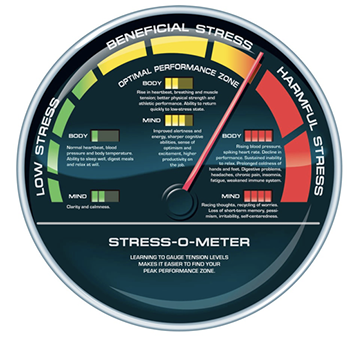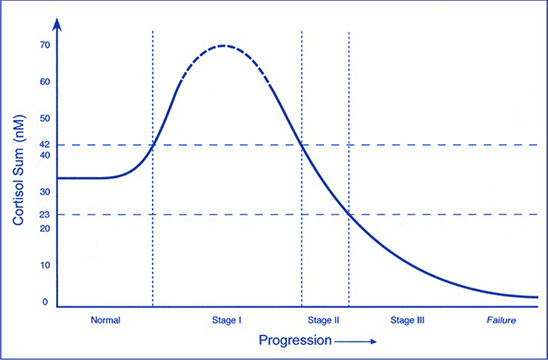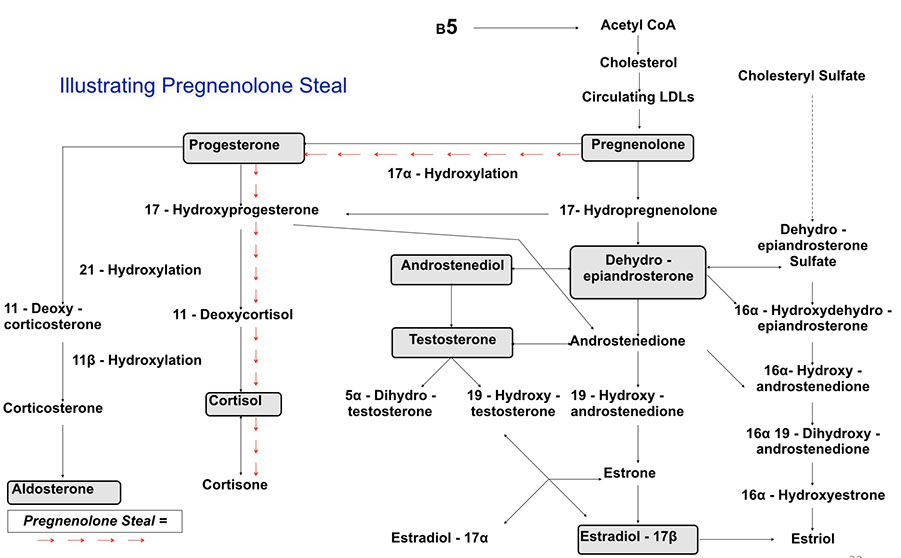The Adrenal Glands and Stress
- Stress refers to anything that disturbs an individual’s physical, mental, or emotional equilibrium.
- The body has numerous stress response mechanisms and stress can affect the body in many different ways.
- The job of the adrenals is to help the body maintain stability and equilibrium.
Autonomic Nervous System
- Sympathetic: Mobilize the body’s nervous system fight-or-flight response. It is, however, constantly active at a basic level to maintain homeostasis.
- Parasympathetic: Responsible for stimulation of “rest-and-digest” or “feed and breed.
- Enteric: Consists of a mesh-like system of neurons that governs the function of the gastrointestinal system.
What is Stress
- A force that tends to strain or deform.
- A physical, chemical, or emotional factor that causes bodily or mental tension and may be a factor in disease causation.

Stressors
- Physical: Fractures, muscle injuries, nerve compression, joint subluxations.
- Emotional/Mental: Fear, Excitement, Worry, Anxiety, etc.
- Chemical – Environmental Pollutants, Smoke, Heavy Metals, Drugs, Toxic Food, Vaccines, Infections, etc.
- Predestined: Job, Family, Location, etc. which can be difficult changed or avoided.
How We React to Stress
- What We Eat: Too much sugar, processed fats, skipped meals, not enough pure water, etc.
- How We Digest: Overeating, poor digestion, toxin-producing bacteria and yeasts.
- How We Assimilate: Decreased absorption, rapid transit time, inflammation, etc.
- How We Eliminate: Constipation, Faulty Detoxification.
- What We Do: Occupation, Exhaustion, Toxic Workplace.
- How We Breathe: Shallow Breathing, Reverse Breathing, Smog, Smoke, etc.
- What We Think: Negative thoughts, Attitudes, Emotions.
- What We Inherit: Genetic weakness (Epigenetic adaption)
Top Cause of Dysfunctional Cortisol/Stress Response
- Mental and Emotional: “How we perceive an event, rather than the event itself, is most important in generating a stress response”
- Imbalanced Blood Sugar Control: “Simple Carbohydrate ingestion leads to rapid elevations in blood sugar which ultimately leads to ‘up & down’ dysregulation via insulin and cortisol responses.”
- Everything Else!
Forms of Stress
- External Stressors
- Toxic exposure
- Light cycle disruptions
- Allergies
- Temperature extremes
- Trauma
- Overwork (physical and/or mental)
- Internal or physiological
- Dietary imbalances
- Nutrient deficiencies
- Lack of sleep
- Blood sugar dysregulation (Dysglycemia)
- Chronic infections
- Pain
- Excessive exercise
- Chronic inflammation
- Mental
- Emotional strain: anger, fear, worry, guilt
- Anxiety
- Depression
The Stress Response
The stress response involves two Major Systems:
- Catecholamines (Epinephrine/NorEpinephrine): Prepare the body to act
- Cortisol: Mobilizes energy (glucose) and other substances to fuel the action.
Cortisol Activity in the Body
- Increases glucose formation, and protein breakdown
- Increases glucose utilization by the CNS
- Increases “insulin resistance” in peripheral system
- Suppresses gastric emptying, slows digestion
- Inhibits sex hormone effects and production
- Suppresses immune function
- Alters thyroid function, production, and effectiveness
- Depletes the body of Magnesium, Zinc, Glutamine, Carnitine, etc
Stress Adaptation Response – Three Phases
- Alarm reaction
- Resistance and compensation
- Adrenal maladaptation and adrenal hypo-function


